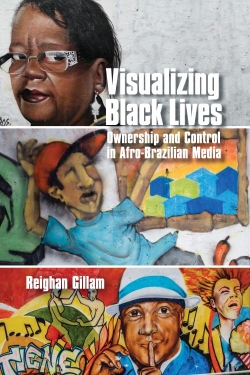

Professor Reighan Gillam, who joined the Department of Latin American, Latino, and Caribbean Studies Department this past fall, illuminates the lives and experiences of Afro-Brazilians.
Growing up in Harrisburg, Pa., Reighan Gillam was steeped in history as a child—African American history in particular. Not only did she reside in the state capital, which had served as a key station in the Underground Railroad and has a majority-Black population, but her father was a longtime high school history teacher.
"I grew up reading a lot, horseback riding, and learning quite a bit about African American history outside of school," says Gillam, an associate professor in the Department of Latin American, Latino, and Caribbean Studies who joined the Dartmouth faculty this past fall.
At the University of Virginia, Gillam pursued a double major in anthropology and African American and African studies. It was during this time that, as part of her coursework, she took a class on the history and culture of Brazil. The course exposed Gillam to a whole new world of Black experiences and ignited a passion for Latin America. She quickly enrolled in another course on the history of race and ethnicity in the region—and never looked back.
Data from the 2022 census shows that 92.1 million Brazilians identify as mixed-race, equivalent to 45.3% of the population; those labeling themselves as Black make up more than 10% of the population.
"I became very interested in populations of African descent in Latin America," she says. "It just seemed like a new place and a new location to explore Black experiences."
Gillam went on to earn her PhD in anthropology, with a focus on Latin American studies, from Cornell University. Faculty appointments at the University of Michigan and University of Southern California followed, as well as prestigious fellowships affiliated with Harvard's David Rockefeller Center for Latin American Studies, the National Endowment for the Humanities, and Mellon Foundation.
As part of her early graduate research, Gillam traveled to Brazil with the intention of studying social protests. Around the same time, in 2005, a new television network called TV da Gente was being launched.
"It was the first Black television network in Brazil," says Gillam, noting that the network was joining "a television and image landscape in Brazil that was relatively devoid of Black people. In fact, a lot of the media just naturalizes this absence of Afro-Brazilians."
Gillam decided to shift her research focus to Afro-Brazilian media portrayals of Black subjects and their experiences. "I wanted to study how Black Brazilians were producing their own images," she says.
As part of the research for her first book, Visualizing Black Lives: Ownership and Control in Afro-Brazilian Media, Gillam examined a short 2010 film called Cores e Botas ("Colors and Boots"), written and directed by Juliana Vicente. Set in the 1980s, the film centers on a young Black girl who wants to be a dancer on the Xuxa Show, a popular television show hosted by a white Brazilian performer and celebrity named Xuxa Meneghel. There's just one problem: All the dancers on the show are white and blonde. The viewer sees the young protagonist first try to emulate Xuxa's look—attempting to straighten her natural curls, for example—but ultimately accept and celebrate her identity.
"The girl picks up a camera herself and decides that she's going to be the one to take pictures," Gillam says. "It's a very short film, but it shows the effects of this kind of media landscape on the psyches and identities of Black girls. And then it posits that people like Black girls and others who are marginalized need to pick up the camera themselves and create their own images. It's advocating for agency."
In her book, Gillam shows how Afro-Brazilian media producers identify, challenge, and break from entrenched racist practices—playing an important role in the movement for Black inclusion.
A New Scholarly Home
This winter, Gillam is teaching a course on race, gender, class, and sexuality in Brazilian film. In the spring, she will teach a course on Black culture and politics. Through her teaching, Gillam tries to immerse students as much as possible into the everyday life of Brazilians.
Gillam is currently working on a second book about how Afro-Brazilians use encounters with and the experiences of Black Americans to challenge a prevailing idea in Brazil that the country has more "benign and harmonious" race relations than other multiracial countries. "There's a lot more synergy and engagement with these two groups than most people probably realize," she says.

Looking back, Gillam says she was attracted to Dartmouth because her interest in Afro-Latin America was welcomed with enthusiasm, and the institution boasts a department for her field.
"In most institutions, Latin American studies is a program and not a department. And in a lot of places, Latin American and Latino studies are separate. So it was exciting to have a department where it's all together: Latin American, Latino, and Caribbean studies."